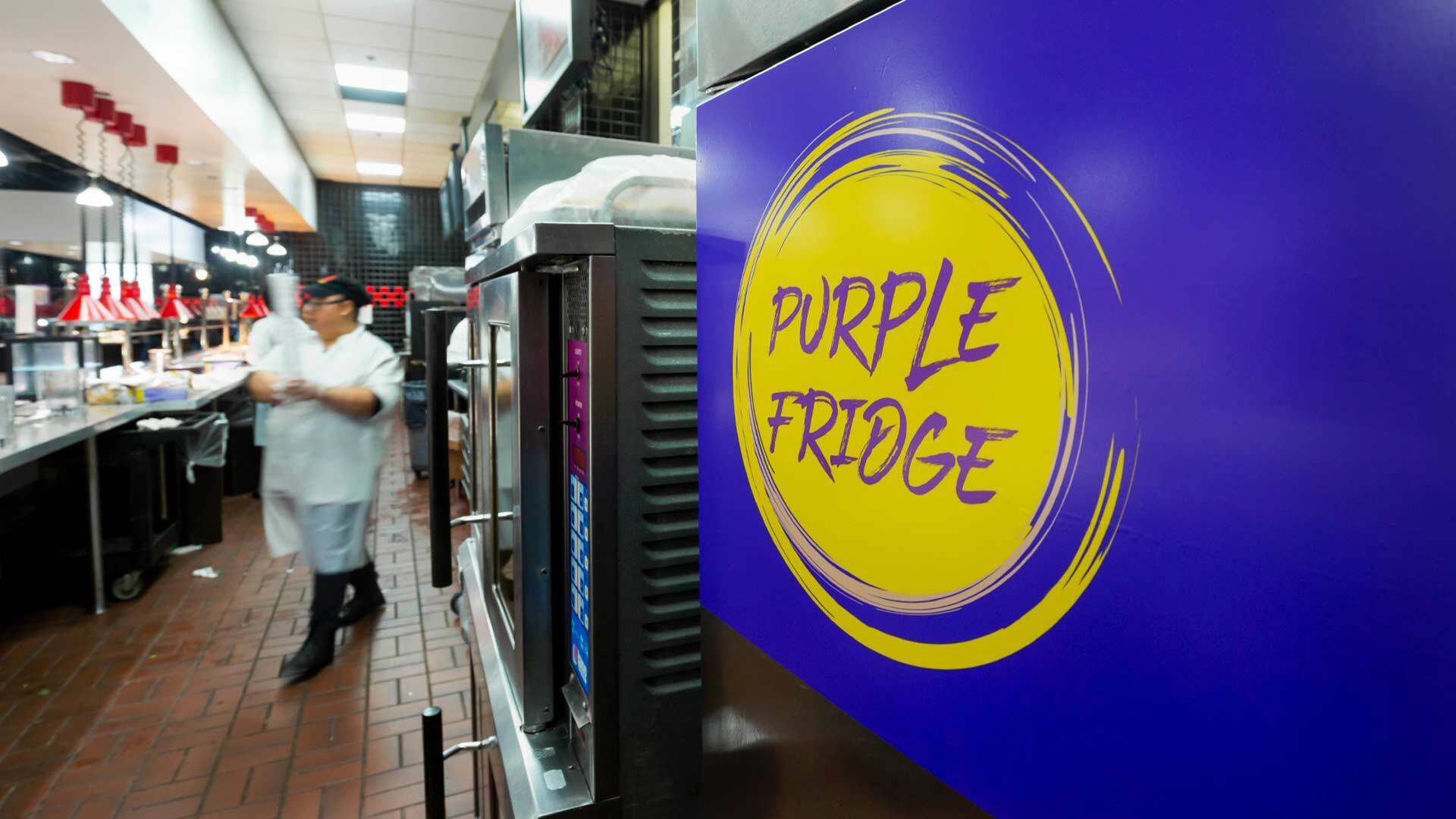- February 07, 2020
- By Lauren Brown
You see a serving spoon at a buffet. Isabela Rey sees a potential threat.
If the UMD sophomore ingests even a trace of gluten on a spoon that's been swapped, she’s immobilized with pain for three days.
Rey said Dining Services has been “fantastic” at accommodating her needs, and now she can eat in campus dining halls with an extra sprinkling of relief, with today’s rollout of new resources for students with food allergies.
Each of the three dining halls now has a station labeled “Purple Fridge,” a self-service freezer, microwave and toaster dedicated to storing and preparing meals suitable for students with specific food allergies. Purple is the color designated by the organization Food Allergy and Research Education for dining facilities to indicate efforts to prevent cross-contamination.
In addition, Dining Services has designated lead allergen cooks in each dining hall, who will wear purple chef coats and to show that they work directly with these students. Jerome Thomas in 251 North, Dereck Blunt in the South Campus Dining Hall, and Valencia Tirado, McDuffy Robinson, Shemba Payne, Forris Pittman and Rosa Munoz in the Diner will build relationships with patrons and provide comfort and nutrition to them on a daily basis.
“This initiative has been a long time coming,” said Sister Maureen Schrimpe, Dining Services nutritionist. “It's the next step in taking care of students on campus who have food allergies.”
Approximately 250 of the 9,000 Terps on dining plans have identified themselves as having a food allergy. Dining Services has developed a comprehensive, personalized framework to help students manage them and food sensitivities.
Every summer, Dining Services sends an introductory card to every new-to-housing student to encourage those with allergies to connect with Schrimpe and Senior Executive Chef John Gray. Students who respond are introduced to available resources and meet with the allergen cooks in each dining hall.
Once on campus, students can call or email requests for meals to be prepared and ready for pickup. Students can step into the kitchen and ask staff for a meal cooked to order. (The success of the in-kitchen program, and by student requests for easier access to allergen-free foods, inspired the creation of the Purple Fridge.)
Symbols on overhead menu boards and on small counter cards throughout the serving areas indicate what allergens each dish contains. Symbols also identify foods that are vegan, vegetarian, hallal and contain local ingredients.
Students can also check UMD NutriSlice, a computer and smartphone application that shows students the allergens in each menu item served in the dining halls along with nutritional information and a full list of ingredients. NutriSlice is accessible through dining.umd.edu, at NutriSlice.com or as a phone app.
Last year, Dining Services added Epi-Pens to every dining hall (as a backup for the Epi-Pens that people at risk of anaphylactic reaction to food carry on them). Managers and supervisors in the dining halls have been trained in their use.
“We are constantly training our staff about how important this issue is,” Schrimpe said. “We work hard to make sure that the students who eat with us can do so safely and with confidence.”
Rey, a music education major, said her biggest worry used to be cross-contamination. But the Dining Hall chefs prepare her food separately and wrap it to ensure it’s safe for her.
“The staff here has lifted a huge weight off my shoulders, allowing me to always have food I not only trust, but enjoy,” she said.
Topics
Campus & Community